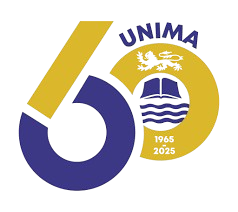APPLICATION FORMS FOR GEOGRAPHY AND EARTH SCIENCE DEPARTMENT AND SHEAMA SCHOLARSHIP
Established in 1965, the Geography and Earth Sciences Department at the University of Malawi is the oldest and pioneer institution providing tertiary education in geosciences education in Malawi. Currently, the department offers undergraduate, masters and doctoral programmes in a wide range of fields of geographical and earth sciences inquiry including mapping sciences (cartography, map analysis, surveying, GIS and remote sensing), physical geography (e.g. hydrology, pedology, meteorology and climatology), human geography (rural development, urban and regional planning and environmental studies) and geology.
Consistent with MW2063 vision of self-reliance and inclusive wealth creation and indeed cognizant of the critical place of the university in the provision of training and skills relevant to the country’s aspirations, the department has embarked on a transformative programme to offer short courses to equip Malawians with knowledge and skills that will enhance their inclusive participation in the country’s socio-economic transformation. The courses will run for eight weeks from 24th January 2022 to 18th March 2022.
In this regard, the Department of Geography and Earth Sciences with support from the USAID-funded Strengthening Higher Education Access in Malawi Activity (SHEAMA) led by Arizona State University (USA), invites applications for admission into any of the following short courses that will be delivered through a blended mode of face-to-face and Open Distance and E-Learning (ODeL) delivery.
-
SHORT COURSE IN MAP READING AND INTERPRETATION FOR SECONDARY SCHOOL TEACHERS
COURSE DESCRIPTION
The field of Geography is concerned with understanding of the earth, its environments, places and peoples among the many arms of the discipline. Central to this is the understanding of Geographic space. In many ways, maps are useful tools for the understanding of space. Over the years, skills in map reading and interpretation have generally been low in the country. The advent of soft-skills using available technologies has only exacerbated the situation. Yet, traditional map reading skills are still as relevant today as they were before as they provide the basis for advanced understanding and application of spatial data. Moreover, the introduction of Geographical Information System (GIS) in the Secondary School curriculum in an environment where basic map reading skills are already a challenge renders both teaching and learning of geography ineffective.
TARGET AUDIENCE
The course provides secondary school teachers especially those in disadvantaged schools such as community day secondary schools and urban private secondary schools with an opportunity to learn and acquire skills in map reading and interpretation. The course also provides a basic foundation to school leavers interested to pursue careers in cartography, surveying and GIS with basic concepts and skills in interpretation and day to day application of spatial data in a wide range of sectors such as land administration and physical planning, natural resource management (e.g. forestry), disaster management and preparedness among others.
-
SHORT COURSE IN GEOGRAPHICAL INFORMATION SYSTEMS & REMOTE SENSING
COURSE DESCRIPTION
This course introduces participants to the world of Geographic Information Systems (GIS) and Remote Sensing. The first part of the module encompasses the following: understanding the concept of GIS, application and capabilities of GIS, geospatial data, digital representation of geographic features, sources of data for GIS
application, familiarization of a GIS mobile app. The second part of the module is an introduction to Remote Sensing including: the fundamental principle of Remote Sensing, applications, satellite data sources and acquisition, processing procedures, interpretation.
TARGET AUDIENCE
Secondary school Geography teachers from across Malawi especially those in disadvantaged schools. Other professionals (e.g. natural resource professionals, physical planning, forestry, health, security and civil aviation) who interact with day to day applications of geospatial data will also be considered.
-
SHORT COURSE IN GEOSCIENCES DATA APPLICATION
COURSE DESCRIPTION
In many developing countries, the majority of students do not have access to commercial software for the analysis of their research data. This is largely due to the high cost of such commercial software which is prohibitive to many institutions of higher learning. As a result, many students are compelled to analyse their research data using less robust available modes for the sake of their progress. Consequently, outputs from the ensuing approaches are of relatively lower quality despite being quite laborious. Students and Researchers need easily accessible robust means of analysing and presenting their data. Open source software like R can therefore be a viable alternative to these challenges. Beyond the course, the participants shall apply the skills in solving day to day problems in Geosciences.
TARGET AUDIENCE
The course is suitable for students (both postgraduate and undergraduates), Researchers, Consultants, professionals in areas of Geosciences dealing with quantitative data (both public and private sectors).
-
SHORT COURSE IN ENVIRONMENTAL IMPACT ASSESSMENT AND STRATEGIC ENVIRONMENTAL IMPACT ASSESSMENT
COURSE DESCRIPTION
This course introduces students to the theory and practice of environmental impact assessment (EIA), the systematic identification and evaluation of the potential effects on the physical, biological, cultural, and socio-economic components of the environment of proposed actions—projects, plans, programs, legislation. The objective of EIA is to encourage consideration of the environment in the planning and decision-making process to arrive at actions that avoid or minimize adverse impacts on the environment. EIA is now mandated by legislation in over 100 countries around the world. With encouragement from ISO 14000, the practice of EIA is expanding into the corporate world to evaluate the environmental aspects of business operations.
TARGET AUDIENCE
All people interested in carrying out and understanding the EIA process, including environmental officers and practitioners in the private sector (e.g. construction and farming sectors). SEA course further targets Central & Local Government officials involved in formulation, planning and implementation of economy-wide policies, strategies, programmes, plans and legislation. These include officials working in Government ministries/departments such as environment, natural resources, economic planning, tourism, mining, energy, infrastructure, roads, agriculture, water, defense, local government, parastatals and regulatory agencies. Officials in the environmental impact assessment (EIA) practice and those from the private sector are eligible to attend the course.
-
SHORT COURSE IN ARTISANAL AND SMALL-SCALE MINING (ASM) IN MALAWI
COURSE DESCRIPTION
Globally, mineral resources are exploited to produce industrial, gemological and technological materials. Mineral resources most especially those with potential in Malawi are poorly researched and hence not well understood, which partly is related to previous government policy that emphasized agrarian production rather than the exploration of Malawi‘s mineral wealth. Similar problems exist also in other parts of Africa. Accordingly, relatively little is known about the occurrence and distribution of economically relevant minerals.
TARGET AUDIENCE
The course targets the youth in the artisanal and small-scale mining activities in order to contribute to the uplifting of their socio-economic wellbeing as well as broadening their participation in wealth creation and the country socioeconomic transformation consistent with MW2063. The course will also consider other applicants who are interested to venture into small scale mining or entrepreneurship or are already involved and are interested in improving their knowledge and skills in artisanal and small-scale mining activities.
ENTRY REQUIREMENTS
Applicants for the short course in Map Reading and Interpretation and Geographical Information System and Remote Sensing should be holders of MSCE or O-Level certificate or IGSCE or GCE or its equivalent with passes in Geography and Mathematics. School leavers interested to pursue careers in cartography, surveying, and GIS may also be considered on case by case basis. Moreover, those applicants from the teaching profession must also have a secondary school geography teaching experience. Applicants for a short course in Geosciences Data Application should possess a minimum of a Bachelor’s degree in any relevant field. Those interested in Artisanal and Small-Scale Mining should possess at least an MSCE or O-Level certificate or IGSCE or GCE and youths are encouraged to apply. Please note that applicants from SHEAMA targeted districts of Karonga, Kasungu, Salima, Balaka, Mulanje and Chikwawa especially adolescent girls and young women and persons with disabilities are particularly encouraged to apply.
TUITION FEES AND SCHOLARSHIPS
The total fees payable per student for the entire duration of the short course is MK200,000.00. Scholarships shall be made available to a few candidates who will meet the programme eligibility criteria. For more information please contact the ODeL Director at University of Malawi (formerly Chancellor College) though elearning@unima.ac.mw or the Director of Scholarships and Grants of SHEAMA through smkwetez@asu.edu.
APPLICATION PROCEDURE
Applicants should fill in an application form which can be downloaded from the University of Malawi website under ODEL programmes www.unima.ac.mw, or can be requested through email from geo@unima.ac.mw. The filled forms together with copies of original certificates should be sent to the following address by Tuesday, 21st December 2021.
If you are applying for a SHEAMA scholarship, send your filled in application form to smkwetez@asu.edu or send through the following postal address:
University Registrar
Attention: The Head of Department,
Geography and Earth Sciences Department, Faculty of Science, University of Malawi, P.O. Box 280,
Zomba.





